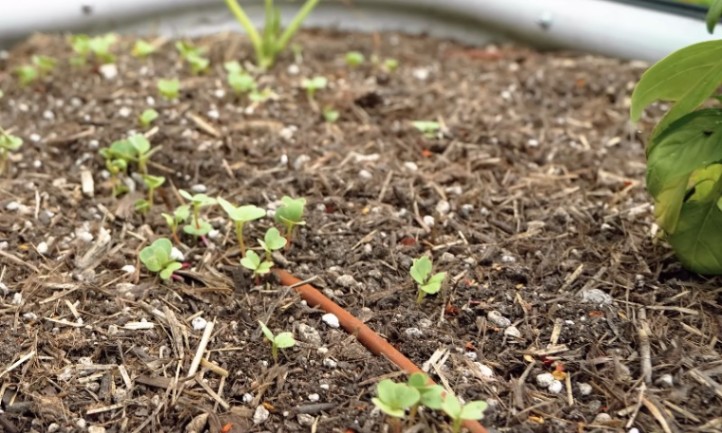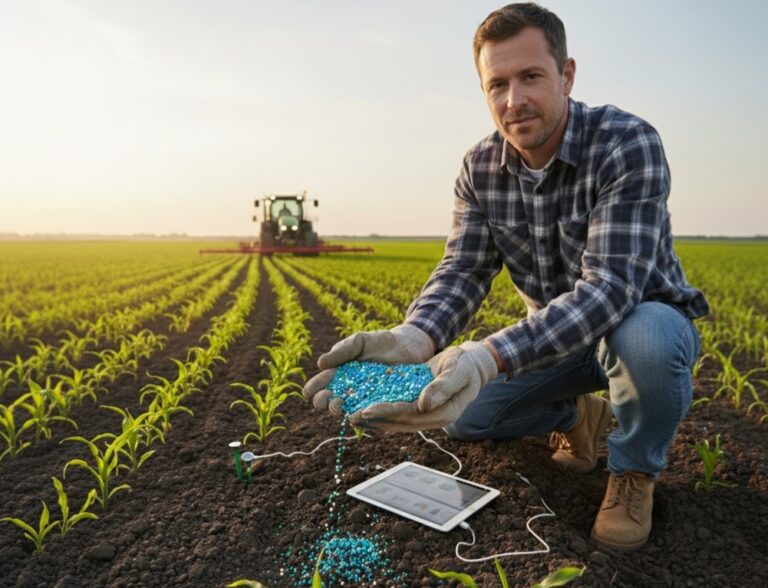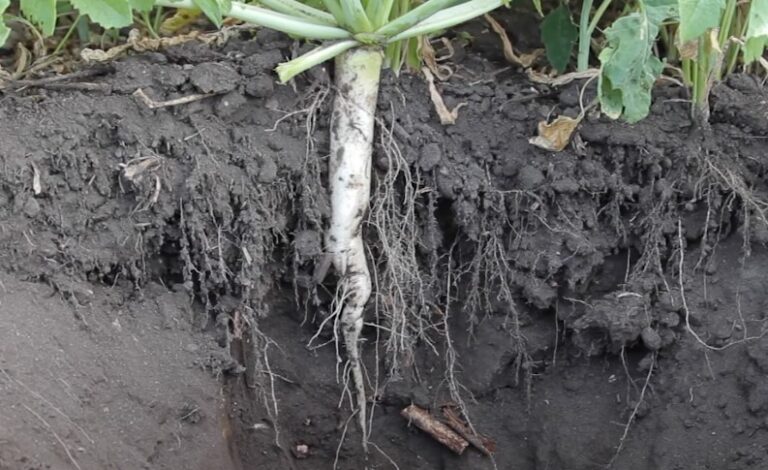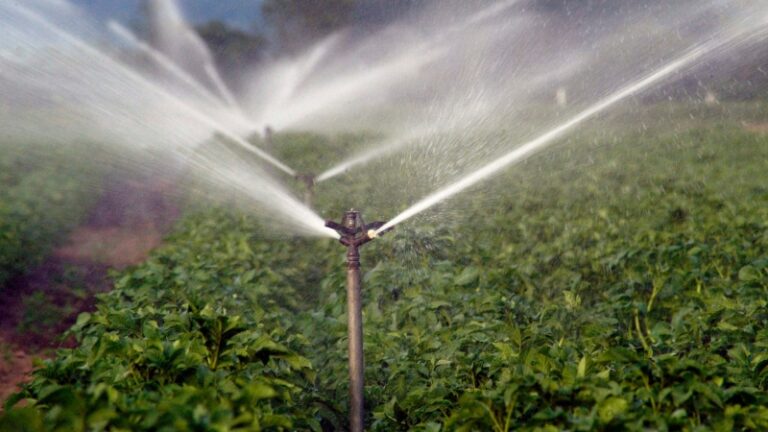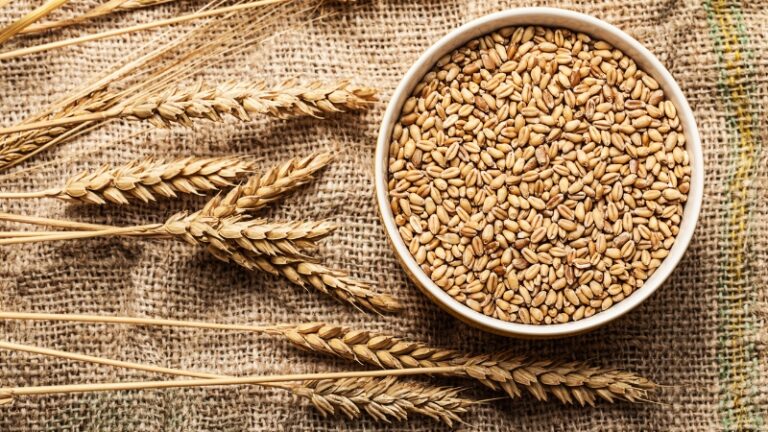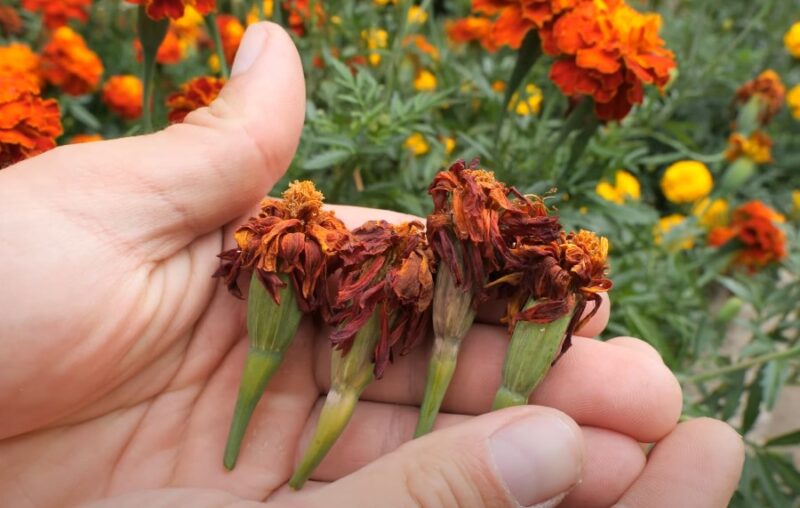Marigold seeds are a beloved choice among gardeners, prized for their bright, cheerful flowers that add a splash of color to any garden.
However, they have a finite shelf life, and their ability to germinate successfully diminishes over time.
For gardeners who want to ensure a thriving garden, understanding the shelf life is essential.
Now we will talk about how long marigold seeds typically last, the conditions that can affect their longevity, and practical tips to help you extend their shelf life, ensuring you always have viable seeds ready to plant.
Shelf Life of Marigold Seeds
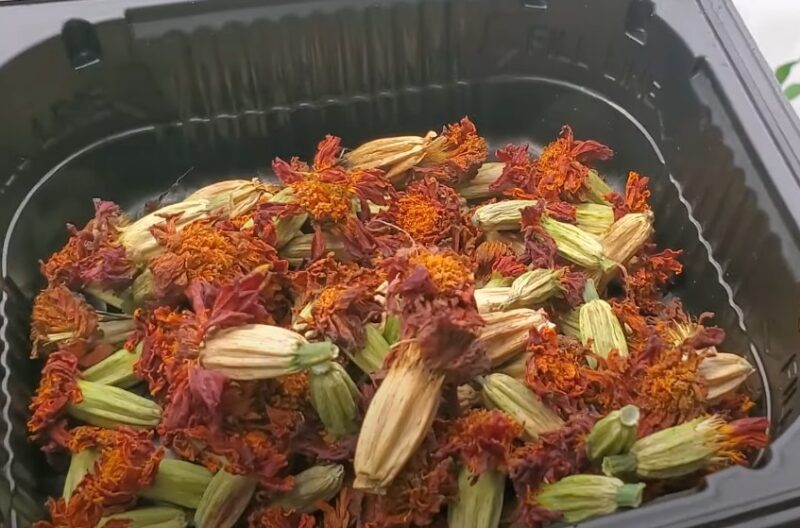
When stored under optimal conditions, marigold seeds can last 5 to 6 years, maintaining their viability and ability to produce healthy plants.
This extended shelf life depends on the environment in which the seeds are stored.
Optimal Storage Conditions:
- Cool Environment: Marigold seeds should be stored in a cool place, ideally at a consistent temperature between 32°F to 41°F (0°C to 5°C). This helps slow down the metabolic processes that can cause them to age and lose viability.
- Dry Conditions: Moisture is the enemy of seed longevity. Excessive moisture can lead to the growth of mold or cause them to rot. Therefore, seeds should be kept in a dry environment, with humidity levels ideally below 8%.
- Darkness: Exposure to light can also contribute to the degradation over time. Storing them in a dark place, such as a sealed container placed in a cupboard or drawer, helps prevent this type of damage.
Factors Affecting Shelf Life:
- Moisture Exposure: Moisture is particularly detrimental to seed longevity. Even small amounts of moisture can lead to mold growth or cause seeds to swell and rot, drastically reducing their shelf life.
- High Temperatures: Those stored in warm environments are more likely to deteriorate quickly. High temperatures accelerate the aging process, making them less likely to germinate.
- Light Exposure: While less harmful than moisture or heat, light can still cause them to degrade over time. Prolonged exposure to light can trigger the breakdown of essential seed components, leading to a decrease in viability.
Methods to Extend Shelf Life:
- Use of Desiccants: Gardeners can use desiccants, such as silica gel packets, to absorb any residual moisture in the storage container.
- Sealed Containers: Storing them in airtight containers, such as glass jars or vacuum-sealed bags, can help create a stable environment that slows down the natural aging process.
Following proper storage techniques can make a significant difference in how long marigold seeds remain viable.
By adhering to these guidelines, gardeners can store them for several years without experiencing a noticeable drop in germination rates.
This ensures that when planting season arrives, the seeds will still have the potential to grow into healthy marigold plants.
Testing Seed Viability
Before planting marigold seeds, it’s important to test their viability to ensure they will germinate successfully.
One simple and effective method is the germination test. The test involves placing a sample of seeds on a damp paper towel, folding it over, and placing it in a sealed plastic bag.
The bag should be kept in a warm location, out of direct sunlight, for about a week.
After this period, it should begin to sprout if they are viable. If a significant number of seeds in the sample germinate, the batch can be considered viable.
On the other hand, if few or none of them sprout, it may be time to purchase new ones.
It allows gardeners to make informed decisions about whether their seeds are still good to use, saving time and effort in the long run.
Tips for Extending the Shelf Life
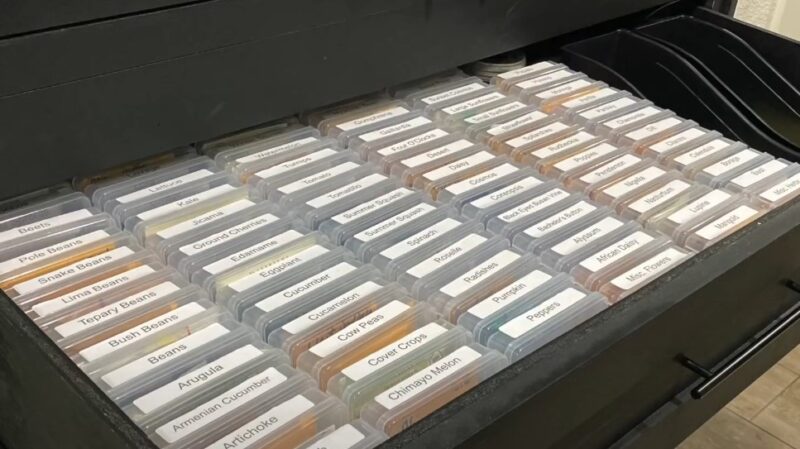
Extending the shelf life of marigold seeds requires careful attention to the harvesting, drying, and storage processes.
Proper techniques can make a significant difference in how long your seeds remain viable, allowing you to enjoy successful planting seasons for years to come.
Below are key tips to help you maximize the shelf life of your marigold seeds:
- Harvesting at the Right Time: After your marigolds have bloomed and the flowers begin to fade, it’s time to collect.
- Thorough Drying: Once you’ve collected the seeds, it’s crucial to dry them thoroughly. Spread the seeds out on a paper towel or a mesh screen in a well-ventilated area.
- Optimal Storage Conditions: Store the dried ones in a cool, dry, and dark environment. Consistent temperature and humidity levels are key to preserving seed viability.
- Use Airtight Containers: To protect them from moisture and pests, store them in airtight containers.
- Add Desiccants: Adding a desiccant, such as silica gel packets, to your storage containers can help absorb any residual moisture.
- Label and Date Your Seeds: Always label your containers with the type of seed and the date of storage.
Practical Applications
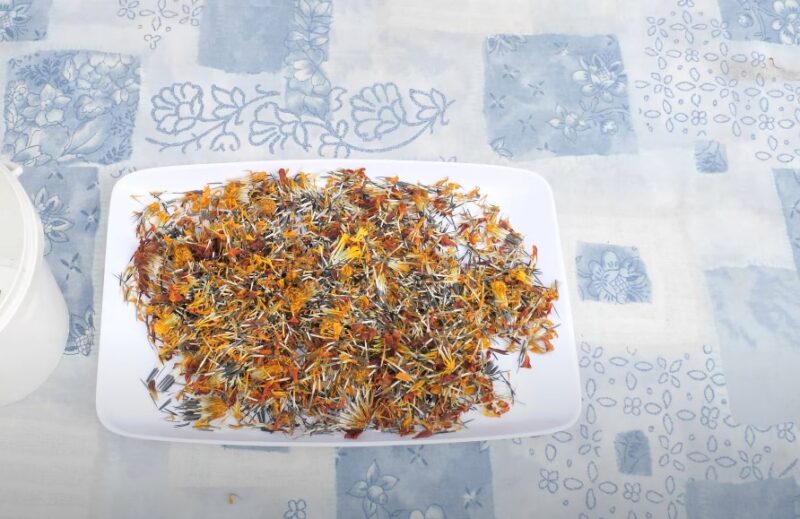
Understanding the shelf life and viability can have practical applications in the garden or a greenhouse. For example, gardeners may find themselves with older seeds and wonder whether to plant them or purchase new ones.
While older seeds can still be used, they may have a lower germination rate, meaning not all will sprout. Gardeners should weigh the risks of using older ones against the cost of buying new ones.
If a gardener chooses to use older seeds, they can compensate for potential lower viability by planting more than usual.
This approach increases the chances of achieving the desired number of plants. If the seeds are several years old, it may be more practical to start fresh with new seeds to ensure a successful crop.
The Bottom Line
The shelf life of marigold seeds can vary significantly depending on how they are stored and the conditions they are exposed to.
While marigold seeds can remain viable for several years, factors such as moisture, temperature, and light exposure can drastically reduce their longevity.


